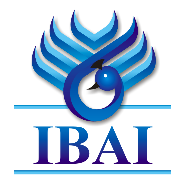I
A | B | C | D | E | F | G | H | I | J | K | L | M | N | O | P | Q | R | S | T | U | V | W | X | Y | Z
I.C.C. Institute Cargo Clauses - There are three basic sets of these clauses (A, B and C). The A clauses cover “all risks” subject to specified exclusions. The B and C clauses cover specified “risks”, subject to specific exclusions.
IBNR Incurred but not reported, is the liability that an insurer has for losses that have happened but not yet reported as claims.
Imperial warranty A warranty that is not expressed in a policy, but which is implied to be therein , by law (e.g warranty of seaworthiness in a voyage policy, warranty of legality in all policies.)
Impaired Insurer - An insurer which is in financial difficulty to the point where its ability to meet financial obligations or regulatory requirements is in question.
Indemnity - Restoration to the victim of a loss by payment, repair or replacement.
Income Taxes - Incurred income taxes (including income taxes on capital gains) reported in each annual statement for that year.
Incurred claims ratio - The percentage of claims costs incurred to premiums earned (see earned premiums).
Inflation Protection - An optional property coverage endorsement offered by some insurers that increases the policy's limits of insurance during the policy term to keep pace with inflation.
Inherent Vice - A property in cargo which causes, or is liable to cause, loss or damage to the cargo, without any accident occurring (e.g. spontaneous combustion). It is always excluded by the insurers of the cargo because of its inevitable nature.
Inland Marine - Inland waterway (river, canal etc) risks, but in practise, the term is loosely applied to certain non-marine risks placed in the marine market.
Insurable Interest - Interest in property such that loss or destruction of the property could cause a financial loss.
Insurance Adjuster - A representative of the insurer who seeks to determine the extent of the insurer's liability for loss when a claim is submitted. Independent insurance adjusters are hired by insurance companies on an "as needed" basis and might work for several insurance companies at the same time. Independent adjusters charge insurance companies both by the hour and by miles traveled. Public adjusters work for the insured in the settlement of claims and receive a percentage of the claim as their fee.
Insurance Attorneys - An attorney who practices the law as it relates to insurance matters. Attorneys might be solo practitioners or work as part of a law firm. Insurance companies who retain attorneys to defend them against law suits might hire staff attorneys to work for them in-house or they might retain attorneys on an as-needed basis.
Institute Clause - A standard clause published by the institute of London Underwriters.
Institute of London Underwriters - An organisation representing the interests of member insurance companies. The institute maintains a close liaison with Lloyd’s marine market, and provides facilities for a number of joint committees to operate.
Institute Warranties - A clause published by the institute of London Underwriters for use in policies covering the hull and machinery of a ship. It comprises five locality warranties and one trade warranty.
Insurable Interest - It is illegal for anyone to insure without an insurable interest or, in the case of marine insurance, a reasonable expectation of acquiring such interest. In general one has such interest when his relationship to property at risk may expose him to loss or liability or where he stands to gain by the safety of such property.
Insurance A device for transferring specified risks of individual persons to an insurer. The insurer agrees, for consideration (usually payment of a premium), to assume, to a specified extent, certain losses that may be suffered by the insured.
Insurance Ombudsman Service - Any policyholder who is dissatisfied with the outcome of his or her dealings with an Indian insurer can contact the Insurance Ombudsman for his/her greivances to be redressed.
Insurance schedule - Sets out the information given to an insurer upon which the decision to offer cover is made. It also displays the individual details of a policy.
Insured - The party to an insurance arrangement to whom the insurer agrees to provide cover against specified losses, or to render services, subject to the terms of the insurance contract.
Insured event - Occurrences which cause loss and damage which are listed in the relevant policy.
Insurer - The party to an insurance arrangement who undertakes to provide cover or to render services, on the happening of specified events.
Investment Income - The return received by insurers from their investment portfolios.
Item Means an individual piece of home contents, such as an item of jewellery.
Interest - Crediting Methods - There are at least 35 interest-crediting methods that insurers use. They usually involve some combination of point-to-point, annual reset, yield spread, averaging, or high water mark.
Investment Income - The return received by insurers from their investment portfolios including interest, dividends and realized capital gains on stocks. It doesn't include the value of any stocks or bonds that the company currently owns.
Investments in Affiliates - Bonds, stocks, collateral loans, short-term investments in affiliated and real estate properties occupied by the company.
Insurance Regulatory Information System (IRIS) - Introduced by the National Association of Insurance Commissioners in 1974 to identify insurance companies that might require further regulatory review.






